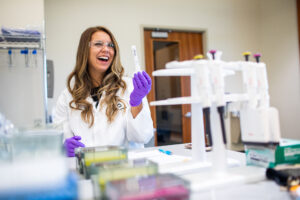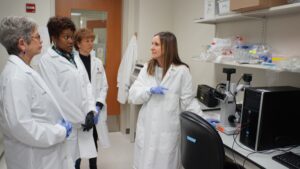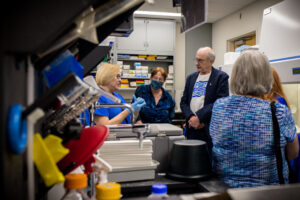Diagnostic Tests & Scans
Diagnostic testing goes far beyond imaging. This section explains how labs, pathology, biomarker testing, genetic testing, and blood tests work together to confirm a diagnosis, identify tumor features, and guide personalized treatment.

Colorectal Cancer Biomarkers
Biomarker testing gives you the information you need to advocate for the treatment options most likely to work for you.

Genetic Testing
Genetic testing provides critical information about inherited risk and helps you and your family make informed health decisions.

Pathology
Learn how pathology reports confirm a colorectal cancer diagnosis and reveal details about the tumor that guide treatment decisions.

Imaging
Get straightforward information on CT, MRI, PET, and other imaging tools that help diagnose, stage, and monitor colorectal cancer.

Labs
Get straightforward information on the lab tests your care team uses to track your health and treatment progress.

